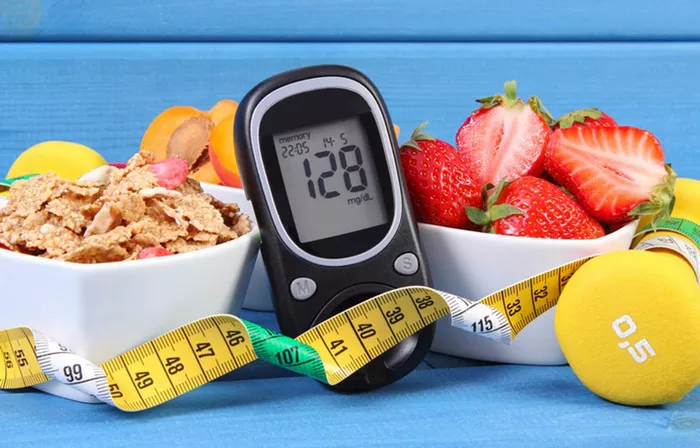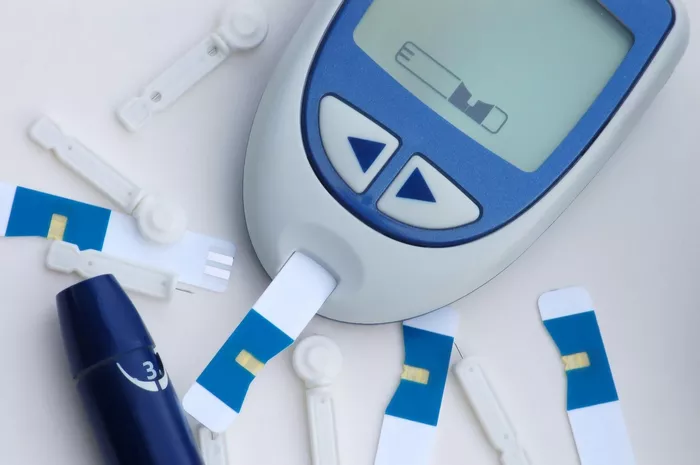Introduction
Hyperglycemia, characterized by elevated blood glucose levels, is a central concern in diabetes management. It not only exacerbates the risk of developing severe complications but also impacts the quality of life for individuals with diabetes. Various factors contribute to hyperglycemia, including dietary choices, physical activity levels, and medication adherence. However, an often-overlooked factor is stress. This article explores the relationship between stress and hyperglycemia, delving into the physiological mechanisms, clinical evidence, and practical strategies for managing stress to maintain optimal blood glucose levels.
Understanding Hyperglycemia
Hyperglycemia occurs when there is an excess of glucose in the bloodstream. For individuals with diabetes, this condition is typically a result of the body’s inability to produce enough insulin (Type 1 diabetes) or an inability to use insulin effectively (Type 2 diabetes). Chronic hyperglycemia can lead to a plethora of complications, including cardiovascular disease, neuropathy, nephropathy, and retinopathy. Hence, maintaining blood glucose within a target range is crucial for preventing these adverse outcomes.
The Physiology of Stress
Stress, defined as the body’s response to any demand or challenge, triggers a cascade of physiological responses aimed at restoring homeostasis. When an individual encounters a stressful situation, the hypothalamus activates the sympathetic nervous system and the adrenal medulla, resulting in the release of catecholamines (epinephrine and norepinephrine). Concurrently, the hypothalamic-pituitary-adrenal (HPA) axis is stimulated, leading to the secretion of cortisol from the adrenal cortex.
Catecholamines and Cortisol: The Glucoregulatory Hormones
Both catecholamines and cortisol play significant roles in glucose metabolism. Epinephrine promotes glycogenolysis and gluconeogenesis, processes that increase blood glucose levels by breaking down glycogen stores in the liver and synthesizing glucose from non-carbohydrate substrates, respectively. Norepinephrine also supports these processes, albeit to a lesser extent.
Cortisol, known as the “stress hormone,” enhances the effects of epinephrine and norepinephrine and also increases blood glucose by stimulating gluconeogenesis and reducing glucose uptake in peripheral tissues. Additionally, cortisol promotes insulin resistance, further contributing to elevated blood glucose levels during stress.
Stress-Induced Hyperglycemia: Mechanisms and Pathways
The connection between stress and hyperglycemia is mediated through several interrelated mechanisms:
- Increased Gluconeogenesis and Glycogenolysis: As described, stress hormones like epinephrine and cortisol increase the production of glucose from the liver. This response ensures that sufficient energy is available to manage the perceived threat but can lead to hyperglycemia in individuals with impaired glucose regulation.
- Insulin Resistance: Chronic stress is associated with increased levels of cortisol, which promotes insulin resistance. This means that cells in the body become less responsive to insulin, resulting in higher blood glucose levels as glucose remains in the bloodstream rather than being taken up by cells.
- Inflammation and Cytokine Production: Stress can induce a pro-inflammatory state, characterized by the release of cytokines such as TNF-α and IL-6. These cytokines interfere with insulin signaling pathways, exacerbating insulin resistance and contributing to hyperglycemia.
- Behavioral Factors: Stress often leads to changes in behavior, such as poor dietary choices (e.g., increased consumption of sugary foods), decreased physical activity, and poor adherence to diabetes management plans. These behaviors can further aggravate hyperglycemia.
Clinical Evidence Linking Stress and Hyperglycemia
Numerous studies have demonstrated a significant relationship between stress and blood glucose levels. For instance, a study published in the “Journal of Psychosomatic Research” found that psychological stress was associated with higher HbA1c levels, indicating poorer long-term glycemic control in individuals with Type 2 diabetes. Another study in the “Diabetes Care” journal highlighted that acute stressors, such as surgical procedures, led to marked increases in blood glucose levels in both diabetic and non-diabetic individuals.
Furthermore, research indicates that individuals with diabetes who experience high levels of stress are more likely to have greater variability in their blood glucose levels, making diabetes management more challenging. Stress-induced hyperglycemia is also a notable concern in hospital settings, where the stress of illness and hospitalization can lead to significant elevations in blood glucose levels.
Practical Strategies for Managing Stress and Hyperglycemia
Given the clear link between stress and hyperglycemia, effective stress management is a crucial component of diabetes care. Here are some evidence-based strategies to mitigate the impact of stress on blood glucose levels:
- Mindfulness and Meditation: Mindfulness-based stress reduction (MBSR) programs have been shown to reduce stress and improve glycemic control. Mindfulness practices, including meditation and deep-breathing exercises, help individuals become more aware of their stressors and develop healthier responses.
- Physical Activity: Regular physical activity is a powerful stress-reliever and helps improve insulin sensitivity. Activities such as walking, yoga, and tai chi can reduce stress levels and contribute to better blood glucose control.
- Cognitive Behavioral Therapy (CBT): CBT is an effective psychological intervention for managing stress and anxiety. By addressing negative thought patterns and behaviors, CBT can help individuals with diabetes develop coping strategies that reduce stress and its impact on blood glucose levels.
- Healthy Eating Habits: Maintaining a balanced diet is crucial for managing both stress and blood glucose levels. Foods rich in fiber, lean proteins, and healthy fats can stabilize blood glucose and improve mood. Avoiding excessive consumption of sugary and high-carbohydrate foods can prevent stress-induced spikes in blood glucose.
- Social Support: Strong social networks provide emotional support and practical assistance, which can buffer against the negative effects of stress. Engaging with family, friends, or support groups can help individuals with diabetes manage stress more effectively.
- Adequate Sleep: Poor sleep quality and duration can increase stress levels and impair glucose metabolism. Establishing good sleep hygiene practices, such as maintaining a regular sleep schedule and creating a restful sleep environment, is essential for stress management and glycemic control.
- Time Management and Relaxation Techniques: Effective time management reduces the sense of being overwhelmed, a common source of stress. Techniques such as progressive muscle relaxation, guided imagery, and hobbies that promote relaxation can also help manage stress levels.
Integrating Stress Management into Diabetes Care
Healthcare providers play a critical role in addressing the interplay between stress and hyperglycemia. Integrating stress management into routine diabetes care involves:
- Screening for Stress: Regular assessment of stress levels using validated tools can help identify individuals at risk for stress-induced hyperglycemia.
- Education and Counseling: Providing education about the impact of stress on blood glucose levels and offering counseling or referrals to mental health professionals can support patients in managing stress.
- Collaborative Care Models: Multidisciplinary teams that include endocrinologists, diabetes educators, psychologists, and social workers can offer comprehensive care that addresses both medical and psychosocial aspects of diabetes management.
- Personalized Care Plans: Tailoring diabetes management plans to include stress management strategies based on individual needs and preferences can enhance adherence and outcomes.
Conclusion
The relationship between stress and hyperglycemia is complex and multifaceted. Stress triggers physiological responses that increase blood glucose levels and can exacerbate insulin resistance, inflammation, and unhealthy behaviors. Recognizing the impact of stress on glycemic control is essential for comprehensive diabetes management. By incorporating effective stress management strategies and fostering a supportive care environment, individuals with diabetes can achieve better control of their blood glucose levels and improve their overall well-being. Understanding and addressing the stress-hyperglycemia connection empowers patients and healthcare providers alike to take a more holistic approach to diabetes care, ultimately leading to healthier outcomes.
Related topics:
Do Beta Blockers Cause Hypoglycemia Or Hyperglycemia?
























